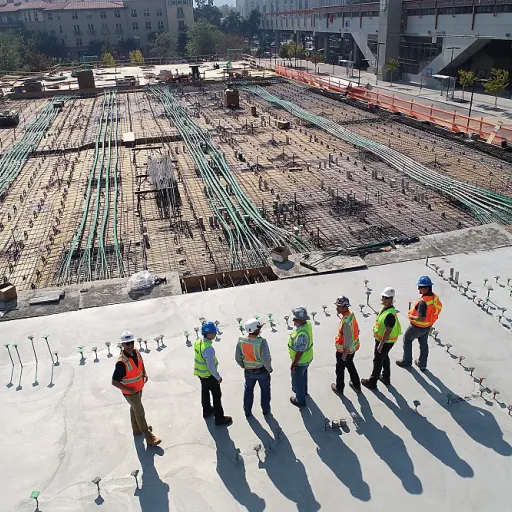
Understanding the skills gap challenge
The Growing Divide Between Job Requirements and Workforce Abilities
Today’s workplace is changing fast, and the gap between what employers need and what candidates offer is widening. This skills gap challenge affects businesses of all sizes, making it harder to find the right person for the job. Many organizations struggle to match their job requirements with the abilities and talent available in the market.
Several factors contribute to this issue. Technology evolves quickly, but not everyone’s skills keep pace. Sometimes, job descriptions ask for a mix of technical and soft skills that are rare in one individual. Even when a candidate looks good on paper, their actual job fit or personality might not align with the role’s demands. This is where employment assessments and pre employment testing come into play, helping employers measure both individual ability and job suitability.
- Hiring decisions often rely on resumes and interviews, which can miss hidden strengths or gaps.
- Traditional interview questions may not reveal a candidate’s true abilities or personality.
- Without the right assessment measures, it’s easy to overlook potential or misjudge job fit.
Companies are searching for better ways to identify, measure, and develop the skills they need. Prevue assessments and other talent solutions are gaining popularity because they offer objective data on candidates and current employees. These tools can help organizations build stronger teams by focusing on job suitability and individual ability rather than just experience or education.
For a deeper look at how early screening can help address these challenges, check out this article on how a pre-screening interview helps bridge the skills gap.
What is prevue assessment and how does it work?
How Prevue Assessments Work in Practice
Prevue assessments are designed to help organizations make better hiring and talent decisions by providing a clear picture of a candidate’s abilities, personality, and job fit. These employment assessments go beyond traditional interviews and resumes, offering a data-driven approach to understanding how well a person matches the requirements of a job.
When a candidate completes an assessment, the process typically involves several components:
- Ability testing: Measures individual ability in areas like numerical reasoning, verbal skills, and working with numbers. This helps identify whether a candidate has the cognitive skills needed for the role.
- Personality assessment: Evaluates traits relevant to the workplace, such as communication style, adaptability, and motivation. The Prevue personality profile offers insights into how a person is likely to behave in different job situations.
- Job fit analysis: Compares the candidate’s results to established job benchmarks, generating a suitability score that reflects how closely the individual matches the ideal profile for the position.
These assessments are not just pre employment tests—they are talent solutions that support ongoing workforce development. By using Prevue, employers can build stronger teams and make informed hiring decisions based on objective data rather than gut feeling alone. The assessment measures are tailored to the specific requirements of each job, ensuring that the right people are matched to the right roles.
Prevue assessments also provide valuable information for interview questions, helping hiring managers probe deeper into areas where a candidate may need support or further development. This approach leads to more effective employment assessments and ultimately improves job suitability across the organization.
For a broader perspective on how education can unlock pathways to success in bridging the skills gap, you can explore this resource on education and skills development.
Identifying hidden skills gaps with prevue assessment
Revealing Overlooked Gaps with Data-Driven Insights
Many organizations believe they have a clear understanding of their workforce’s strengths and weaknesses. However, traditional hiring and training methods often miss subtle but important skills gaps. This is where prevue assessments provide a significant advantage. By using objective assessment measures—such as numerical reasoning, personality assessment, and job fit—employers can uncover areas where employees or candidates may not fully meet the requirements job demands.
Prevue’s approach goes beyond resumes and interviews. When a candidate completes assessment testing, the results highlight both strengths and areas for development. For example, a person may have strong technical abilities but lack the working numbers skill required for a finance role. Or, a team member might demonstrate excellent individual ability but struggle with the personality traits needed for effective collaboration.
- Job benchmarks help compare individual results against the ideal profile for a specific role.
- Assessments reveal hidden gaps in abilities and personality that may not surface during interviews.
- Employers receive a suitability score to quickly gauge job fit and identify where additional support or training is needed.
These insights are especially valuable for hiring and talent solutions teams aiming to build stronger teams and make better hiring decisions. By identifying gaps early, organizations can tailor training and development programs to address specific needs, rather than relying on generic approaches.
For a deeper look at how prerequisite skills and assessments work together to bridge these gaps, explore this resource on the benefits and drawbacks of prerequisite courses.
Using assessment results to inform training and development
Turning assessment data into actionable development plans
Prevue assessments provide a detailed look at each candidate’s abilities, personality, and job fit. Once a person completes an assessment, employers gain valuable insights into their strengths and areas for improvement. This information is not just for hiring decisions—it’s a foundation for building stronger teams through targeted training and development. When organizations use employment assessments, they can:- Pinpoint specific skills gaps in numerical reasoning, working with numbers, or other job requirements
- Identify mismatches between individual ability and job benchmarks
- Understand how personality traits may impact working styles or learning needs
Improving hiring decisions with skills-based insights
Enhancing Recruitment with Data-Driven Insights
Making the right hiring decisions is more challenging than ever. With the skills gap widening, relying on resumes and interviews alone can lead to mismatches between candidates and job requirements. Prevue assessments offer a structured way to measure individual abilities, personality, and job fit, helping organizations build stronger teams from the start. Pre employment assessments go beyond surface-level qualifications. They provide a deeper understanding of a candidate’s suitability for a specific role by evaluating:- Numerical reasoning – assessing ability to work with numbers and solve job-related problems
- Personality traits – using personality assessment to predict how a person will fit into the team and company culture
- Job benchmarks – comparing assessment results to established requirements for the job
From Assessment to Interview: Asking the Right Questions
Assessment measures can also inform the interview process. By identifying areas where a candidate’s abilities or personality may differ from the ideal job fit, employers can tailor interview questions to explore these gaps. For example, if a test reveals strong technical skills but less experience working in teams, interviewers can ask about past collaboration and adaptability.Building a Stronger Workforce
Using prevue assessments as part of employment assessments ensures that hiring decisions are based on objective data. This not only improves job suitability but also supports long-term retention. People who are well-matched to their roles are more likely to thrive, reducing turnover and helping organizations close the skills gap over time. In summary, integrating assessment tools into the hiring process empowers employers to make informed decisions, identify hidden strengths, and address gaps before they impact performance. This approach is essential for any organization aiming to attract and retain top talent in today’s competitive employment landscape.Tracking progress and adapting strategies over time
Monitoring Skills Development and Adapting Talent Strategies
Tracking progress is essential when using prevue assessments to bridge the skills gap. Once candidates or employees complete assessment measures, organizations gain a clear picture of individual abilities, job fit, and suitability scores. But the real value comes from ongoing monitoring and adapting strategies as people grow and business needs change. Prevue assessments provide data on numerical reasoning, personality, and working with numbers, which can be compared over time. This helps HR teams and managers see if training programs are effective or if additional support is needed. For example, if a person’s ability in a key area improves after targeted training, it shows the investment is working.- Regularly review assessment results to identify trends in talent development
- Use job benchmarks to measure progress against requirements job by job
- Adjust training or coaching based on updated assessment data
- Refine interview questions and hiring decisions as new patterns emerge













